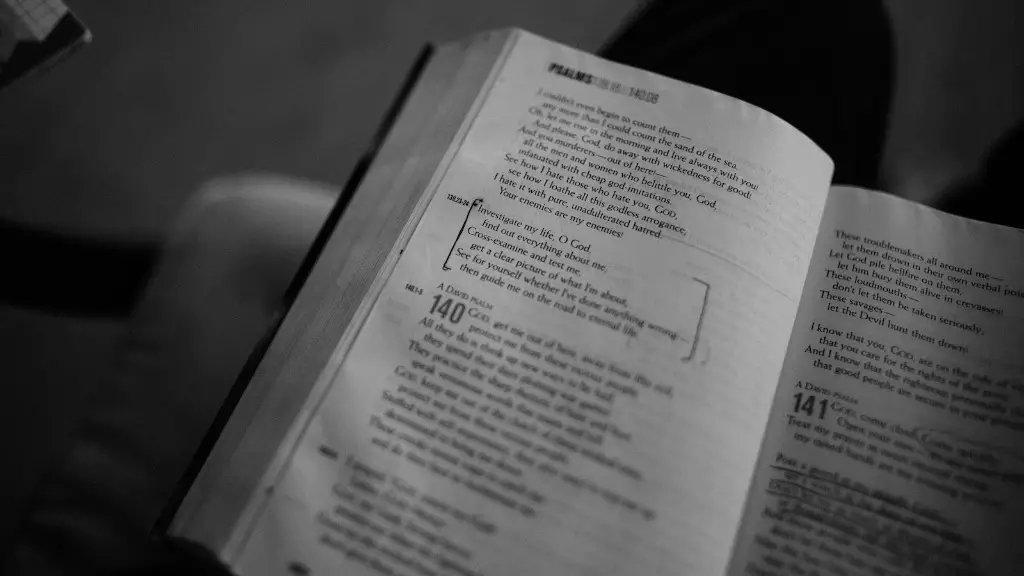Lamentation is a expression of intense grief or sorrow. In the Bible, it is often used in reference to the act of grieving for the dead. However, it can also be used more broadly to refer to any situation in which someone is experiencing great sorrow or loss.
There is no one answer to this question as the Bible does not give a single definition of lamentation. Different Bible passages likely have different definitions for the term, and some verses may not use the word at all. In general, though, lamentation refers to an expression of deep sorrow or anguish, usually over the loss of a loved one or some other tragedy. Lamentations in the Bible are often found in the Psalms, and they typically involve crying out to God for help in the midst of difficult times.
What is the meaning of lamentation in the Bible?
It is so important for Christians to lament in prayer to God when we are experiencing sorrow, pain, or confusion. Lament is a way of processing grief in God’s presence, and it allows us to express our deepest emotions to Him. It is a way of crying out to God for help and comfort, and He always hears us and is there for us.
The book of Lamentations is a powerful expression of grief and suffering. It is a fitting book to turn to when we are experiencing loss and pain. But, as Christians, we know that there is hope in the midst of our sorrow. The book of Lamentations points us to Jesus, the ultimate grief-bearer.
Jesus came into the world as the true Israel of God. He stood in the place of many and took the burden of sin and sorrow upon himself. By doing so, he reconciled humanity to God. When we turn to Jesus in our times of grief, we can find hope and comfort. He is the ultimate grief-bearer, and he knows our sorrows and our pain.
Why is lamentations so important
Lamentations is a moving and powerful poem that captures the devastation of the city of Jerusalem and its Temple. Written with great poetic artistry, it is a moving tribute to the city and its people.
When we are dealing with pain and suffering, it is important to remember that we have the opportunity to cry out to our Father in heaven and know that we will be heard. This relationship between lament and faith allows us to petition to God and know that our pain will not last always.
Who is talking in the book of Lamentations?
These chapters of Lamentations record the prophet Jeremiah’s lament over the destruction of Jerusalem. He mourns the loss of the city and the people, and he recognizes that the city was destroyed because the people rebelled against the Lord. Even in the midst of his grief, Jeremiah remains faithful to the Lord and calls on the people to repent and return to Him. These chapters serve as a reminder of the consequences of disobedience and the need for repentance.
The Lamentations of Jeremiah is a collection of five poems that express the poet’s grief and anguish over the destruction of Judah and Jerusalem by the Babylonians in 586 BCE. The poems are filled with sorrow and despair, but also with hope and faith that the people of Judah will one day be restored to their homeland.
What does lamentations teach about the character of God?
One of the most dominant characters within the book of Lamentations is God. God is spoken about and spoken to, although the voice of God is never heard. Various voices within the text speak of God, describing both God’s actions and God’s attributes. This enables the reader to get a clear understanding of who God is and what He is like.
The book of Lamentations is a powerful reminder of the importance of turning to God in times of suffering. The book demonstrates the purpose and power of laying out our complaints to God and asking for His help. It also shows us the importance of choosing to trust God, even when the dark clouds of suffering roll in. The book of Lamentations is a valuable resource for anyone who is struggling with suffering or difficult times.
How does lamentations point to Jesus
As we read Lamentations, we see that Jesus is our Suffering Savior. He cries out from the cross, as He suffers for our sin. He laments for His people, but He also declares us not guilty. He pays the price for sin for all who believe in Him. Jesus is our only hope and our only salvation. Thank you, Jesus, for being our Suffering Savior!
grief is not tame. it is a wild thing. it cannot be tamed or controlled. it can only be felt and processed. lament is how grieving people can process their sorrow. it is a cathartic release that allows them to grieve in a healthy way. without it, grief can become destructive.
What are the two types of lament?
The complaint, or lament, is the most common type of psalm. These appear in two distinct varieties in the book of Psalms: individual and communal. The individual complaint psalms are generally written by an individual who is experiencing some sort of hardship or persecution, and who is crying out to God for help. The communal complaint psalms are generally written by the community as a whole, and are usually lamenting some sort of national disaster or crisis.
This process of lamenting can be incredibly difficult, but it is worth it because it brings us closer to God. By turning to God, complaining to Him, asking for His help, and trusting in His goodness, we are able to find the comfort and peace that we so desperately need.
What are the 4 parts of lament
Lament is a type of prayer that is based on four elements: turning, complaining, asking, and trusting. Turning refers to turning to God in times of trouble. Complaining refers to expressing one’s grievances to God. Asking refers to asking God for help. And trusting refers to trusting that God will help.
This is a beautiful passage that speaks to the heart of who God is. He is a loving God who does not desire to see us suffer. When we are going through tough times, He is there with us, grieving alongside us. But because of His great mercy, He will never abandon us. He will always be there for us, even when we don’t understand why things are happening the way they are. In the silence, we can wait for God to speak to us and give us the guidance we need.
What is the prayer of lamentation?
Lamentations are a very common type of prayer in the Bible, occurring in over one third of the Psalms. Lamentations are typically prayers for help or deliverance from pain or suffering. The Book of Job is a particularly notable example of a work that includes many lamentations, such as Job 3:11 (“Why did I not perish at birth, come forth from the womb and expire?”).
The Roman Emperor Diocletian was a fierce opponent of Christianity and he did everything he could to eradicate the religion from the Roman Empire. In AD 301-304, he ordered the burning of thousands of copies of the Bible and commanded that all Bibles be destroyed. He also decreed that any home with a Bible in it should be burned. In fact, he even built a monument over what he thought was the last surviving Bible. Thankfully, his attempts to extinguish Christianity were unsuccessful and the religion continued to spread throughout the Roman Empire and beyond.
What was Jeremiah’s sin
These statements clearly indicate that Jeremiah was not favorable towards the priests and King Jehoiakim. This angered the priests and King Jehoiakim who then charged Jeremiah with treason. Luckily, some of Jeremiah’s friends were able to hide him until the situation calmed down.
Jeremiah was a prophet who lived during a time of great upheaval in the nation of Judah. The city of Jerusalem was under siege by the Babylonians, and the people were suffering greatly. Jeremiah lamented the destruction of Jerusalem and the affliction of its people, but even in his grief, he testified of the Lord’s compassion. He pled with the Lord to forgive the people of Judah and turn them back to Him. The Lord did indeed have compassion on His people, and He turned them back to Him.
Final Words
Lamentation is an expression of grief or sorrow, typically in the form of a song or poem. In the Bible, lamentation is often used to express the sorrow and pain felt by the people of Israel as a result of their sin and the consequent punishments that God has brought upon them. Lamentations is a book of the Bible that consists of five poetic laments for the destruction of Jerusalem.
Lamentation is an expression of deep grief or sorrow. In the Bible, it is often used in reference to the sorrowful cries of those who have been bereaved or who are suffering from some great catastrophe. Lamentations also occur in religious contexts, where they may express the grief of those who have lost their faith or who feel abandoned by God.





